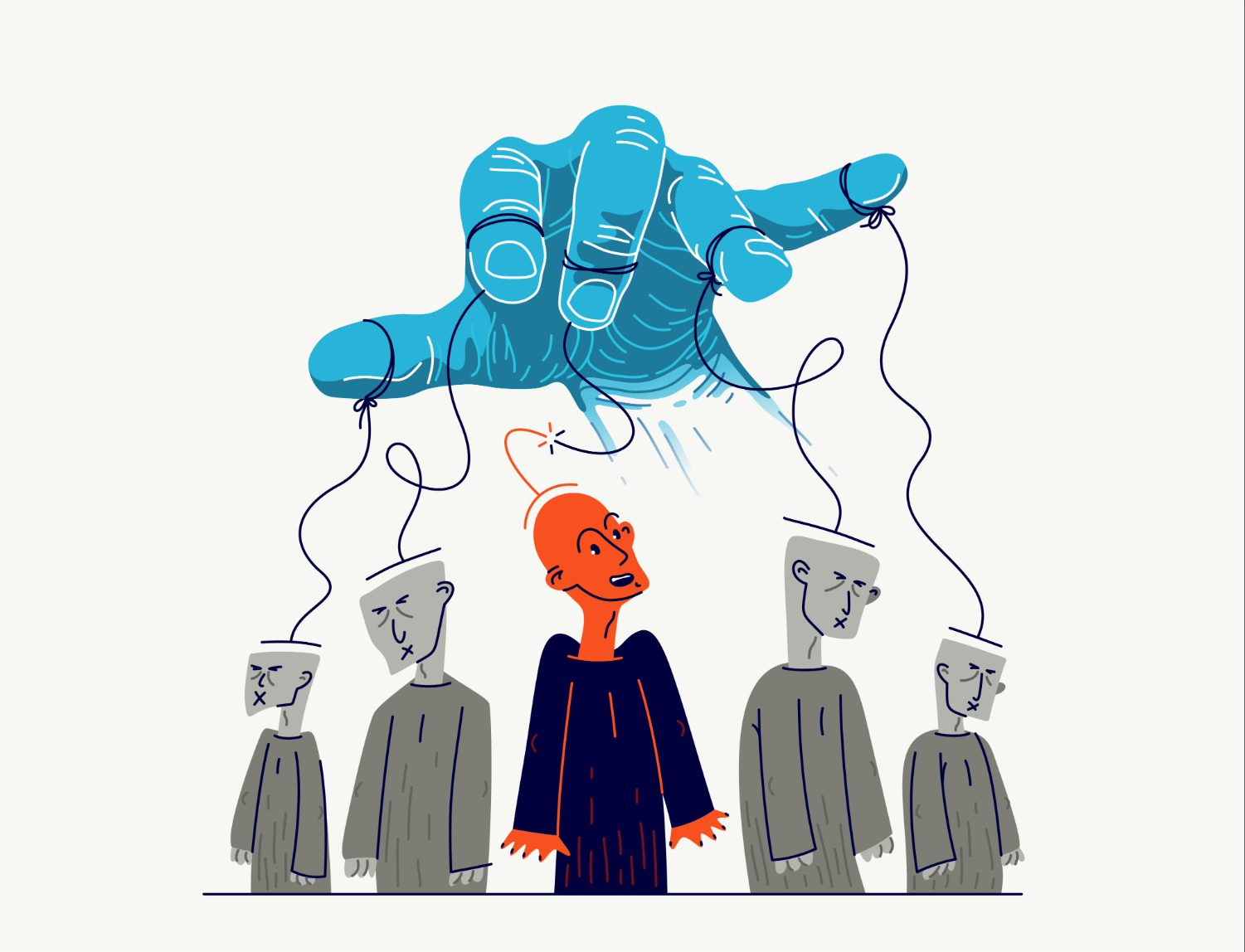One of the first Executive Orders signed by American President Donald Trump on January 20, 2025, the day of his second inauguration, identified “extremist gender ideology” as a national-security level threat. The order mandated that all US federal agencies only recognize biological sex assigned at birth. The orders included a review of all documentation and programming for specific terminology, the extent of which only became clear by March 2025, as a sweeping list of targeted terms came into effect. These terms include: “female,” “women,” “women and underrepresented,” “gender,” “gender based,” and “gender-based violence,” among others, notably not “men” or “male.”
Consequently, a professor at Texas A&M was recently fired for teaching content deemed to promote “gender ideology” in her Literature for Children course. Responding to one assigned reading featuring a nonbinary child, a student filmed their classroom and their verbal accusation that the professor was “violating” the aforementioned executive order. Initially, the professor retained her position because there existed no state or federal law, or university policy, prohibiting instruction on gender. But her termination resulted from the focused attention of state-level, Trump-administration aligned politicians, who claimed that the professor was teaching ‘illegal concepts’ with the intention of “indoctrinating” students and demanded firings at the public university. Within days of a GOP-legislator backed social media melee, the professor was fired, the department chair and dean were demoted, and the university president resigned.
Authoritarian Gender Ideologies
This is not a unique incident, nor is it without historical precedent. Seizing on legitimate societal anxieties and fears, authoritarians pose groups of people as the cause of societal problems, then prescribe exclusion of those peoples and enforced conformity to the authoritarian’s norm, as the solution. This tactic appeared prominently in Nazi Germany, where Jewish people, persons with disabilities, and political opponents were scapegoated in relation to Germans’ rapidly declining living standards and economic discontent following the Wall Street Crash of 1929 and reparations from World War I, justifying systematic persecution and genocide.
This formula was referenced in Cynthia Enloe’s retirement lecture titled Feminist Curiosities in Dark Times, given on October 18, 2025. Enloe, a field-defining feminist international relations scholar renowned for her work on gender and militarism, warned: “Watch out for the ‘us,’ watch out for the ‘them.’ Especially if for the sake of popular organization or militarized resistance.” Her warning captures a fundamental tactic of authoritarian movements: the construction of a mythical “us:” a pure, traditional people with deep historical roots, set against a threatening “them:” who do not fit within the authoritarian’s tent. This is a carefully and intentionally constructed narrative that fuels what Enloe terms as a “nationalistic, patriarchal downward spiral.”
The ways in which authoritarian propagandists weaponize individual fears and demonize nonconformity to their approach have varied contextually throughout history, but typically rely heavily on patriarchal norms, values and means of coercion. As outlined by foundational feminist scholar Judith Butler in their book “Who’s Afraid of Gender,” authoritarians have long weaponized what they call a “phantasm” of gender, with the term gender being used as a vague but evocative symbol to displace and substitute a wide range of anxieties and fears.
Butler explains that gender becomes a catchall scapegoat for societal decline, allowing authoritarians to blame feminism, the advancement of LGBTQ+ rights, and gender equality for entirely disparate modern phenomena. For instance, under the administration of President Jair Bolsonaro, Brazilians faced rising poverty and food insecurity as well as a significant fiscal deficit, yet lawmakers at all levels introduced over 200 legislative proposals banning “indoctrination” and “gender ideology,” framing these restrictions as necessary to prevent moral decay and economic harm. While gender equality cannot possibly cause economic unemployment, demographic decline, or national weakness, the logical inconsistency is irrelevant. What matters is that ‘gender’ absorbs blame for whatever anxieties—economic instability, cultural change, loss of national standing—the authoritarian wishes to address. This “phantasm” of gender allows authoritarians to propose solutions, such as the elimination of gendered language, enforcement of specific gendered social roles, restriction of reproductive autonomy, to the problems they misattribute, expanding state control while claiming to act in defense of their nation.
Recent research on contemporary authoritarian movements confirms this pattern across multiple contexts. In a September 2025 report titled “(En)Gendering Authoritarianism” for the UC Berkeley Institute of Othering and Belonging, researchers Míriam Juan-Torres, Laura Livingston and Tara Chandra summed up that:
“Because gender and sexuality are deeply rooted aspects of identity that shape how individuals understand themselves and interact with the world—and because gender and sexuality are fluid and malleable concepts—issues even loosely associated with gender can be framed as threats to more ‘fixed’ notions of tradition, national identity, and even personal identity. This makes gender a particularly potent weapon for authoritarians to leverage to build support for the expansion of state power and even violence against scapegoated groups in the name of ‘restoring order.’”
Juan-Torres, Livingston and Chandra describe the practical impact of Butler’ gender phantasm, saying that “ideas about masculinity and femininity are invoked to sell a rigid social order—where ‘real men’ are dominant, and women focus on fulfilling their ‘natural’ roles as mothers and homemakers. These gender tropes are used to stir up fear about societal decay, blame feminism or LGBTQ rights for national decline, and attract followers looking for a sense of belonging or control.” The authoritarian gender phantasm, in which feminists, LGBTQ+ people, minority groups, and immigrants are framed as existential threats to the nation also undermines gender equality initiatives and LGBTQ+ rights by portraying them as extreme or ideologically driven. By gradually reshaping what people consider normal, natural, and acceptable, authoritarian values can be ingrained societally. These tactics extend far beyond rhetoric through legal restrictions, institutional purges, surveillance, and violence against those deemed nonconforming.
Historically, this can be seen across colonial and authoritarian regimes, like the Nazi regime, the Soviet Union, clerical Iran, and fascist Italy. In Italy, despite initially emerging within a broader ‘futurist’ movement highly concerned with physical fitness, military readiness and technological innovation, that entertained women’s inclusion in society, Benito Mussolini’s fascist regime eventually strictly enforced women’s exclusion from politics. Motherhood and domestic labor were instead elevated in status as a patriotic contribution to the nation, with social policy programs like government subsidies offered for families with more than six children.
Other modern authoritarian regimes are also concerned with sex, gender identity, and the preservation of the nation, but also often use the language of empowerment, science, and truth. In the United States, the language of the previously mentioned Trump executive order, titled “Defending Women from Gender Ideology Extremism and Restoring Biological Truth to the Federal Government,” provides an undeniable example of how authoritarians frame sex and gender and how they make existential the perceived threat of this gender phantasm, saying:
“Efforts to eradicate the biological reality of sex fundamentally attack women by depriving them of their dignity, safety, and well-being. The erasure of sex in language and policy has a corrosive impact not just on women but on the validity of the entire American system. Basing Federal policy on truth is critical to scientific inquiry, public safety, morale, and trust in government itself.”
Not unlike the Mussolini regime in Italy, the Trump administration has also tied motherhood to national service, demonstrative in initiatives like considerations for cash incentives for women to have more children.
Russian President Vladimir Putin has repeatedly decried declining birth rates, as justification for the villainization of LGBTQ+ people and proof of moral decay in the West. Putin’s government is also providing government subsidies for women who have 10 or more children through the return of the Soviet-era award “Mother Heroine.” Putin has mocked Europe’s acceptance of LGBTQ+ people, condemning “parent number one and number two instead of mom and dad,” further legitimizing his repressive regime tactics and positioning queerness as a foreign threat. This is a starkly transparent component of Putin’s framing of the war in Ukraine, Russian leaders and Orthodox Church officials have repeatedly described the invasion as a crusade to defend traditional family values against Western degeneracy.
Hungary has taken these tactics to an even more extreme degree, with Prime Minister Viktor Orbán’s government citing the “great replacement”—a conspiracy that global elites aim to replace white citizens with immigrants of color. To counter this, the government has enacted heavy subsidies that account for five percent of Hungary’s GDP, such as a lifetime tax exemption for women who have four or more children and housing grants. These benefits are exclusively provided to married heterosexual couples. Furthermore, in 2018, Orbán’s government dismantled all gender studies programs in their universities under the guise of ‘fighting for academic integrity.’
In China, scholars that regularly publish state-friendly narratives about women’s roles in society that appear progressive but actually reproduce traditional, hetero-normative family-based hierarchies are supported and elevated by the government. While China is now providing extensive financial incentives for couples to have children, that has not always been the case. The now historical one-child policy was enforced through exorbitant fines, compulsory sterilizations, and abortions. Wealth determined which families were able to afford fines, creating an environment in which certain types of women were encouraged–and restricted–to give birth.
The aim across these contexts is not necessarily to eliminate the language of gender but rather control the language of gender’s meaning and application. Authoritarians depict ‘their’ populations as vulnerable and themselves as guardians, assuming the role of the father in the family that is the nation. By positioning his regime as the guardian of natural gender roles, the authoritarian performs a geopolitical version of protectionism that keeps his family (nation) “safe” through the expansion of his control. The co-optation of protection is ingrained in the global resurgence of authoritarianism. These are a few examples of authoritarian regimes that present their policies in the language of protection and empowerment, which make it incredibly difficult to oppose them without seeming like you are against the very groups they claim to protect. From Russia’s invasion of Ukraine to Hungary’s reproductive health policies to the United States’ elimination of specific terminology from its institutions, authoritarians are anchoring their legitimacy with gendered discourse: strong men defending vulnerable women, traditional families being the distinction between civilization and chaos, and women as mothers or virtuous martyrs. This rhetoric justifies both physical violence and systemic repression with authoritarians as the protector of the Nation, punishing dissent–often violently–in the name of safety. Authoritarians have always had their own ‘gender ideologies.’
Gender, Intersectionality, and the Global Rise of Authoritarianism
These strategies bleed into every aspect of daily life, from education to the economy, from health to technology, and from military and security to media. At the Fletcher School’s 11th annual Conference on Gender and International Affairs on November 13 to 14, 2025, we aim to explore how this current global rise of authoritarianism is shaping identities, restricting rights, and redefining who belongs—and who does not—across political, social, and economic spheres.
We will look at how AI and social media can both challenge, and support, authoritarianism and inequality, focusing on whose voices are heard, whose are silenced, and how power is contested in digital spaces. We will explore the critical role of governments and academic institutions in restricting academic freedom, especially on topics related to gender and identity, through censorship and restrictions. We will examine how militarization and authoritarianism intersect with gender, peace, and security. We will reflect on dominant models of masculinity to understand their impact on systems of power and care. We will explore how the global care economy reinforces control, extraction, and exclusion. And, finally, we will highlight different resistance movements against authoritarian regimes and how feminist and gender justice movements globally have fought against oppression, patriarchy, and systemic inequalities. We hope you will join us in unpacking the role of gender and identity within the global rise of authoritarianism.



